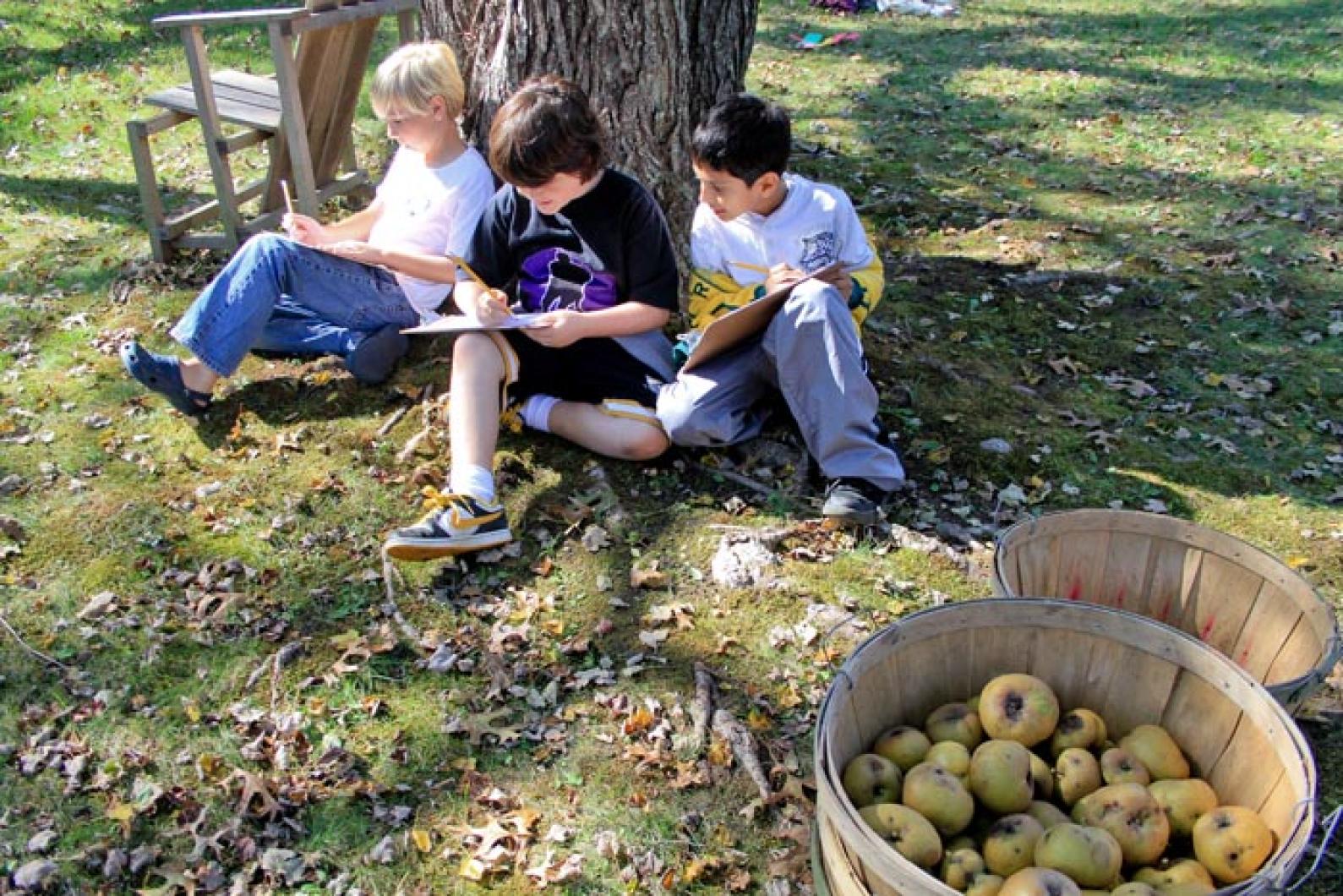If you think Martha’s Vineyard is a wealthy place, consider the fact that twenty-five per cent of Island families whose children attend public schools participate in the free and reduced lunch program. Or that there are pregnant women living on the Island who lack access to proper neonatal nutrition.
Leaders at Island Grown Schools have begun to identify these and other gaps in food equity, especially among very young children. And this year IGS will begin the work of reaching these under-served Islanders, director Noli Taylor told a small gathering at Beetlebung Farm in Chilmark on Tuesday evening.
IGS is a program of the Island Grown Initiative, a nonprofit dedicated to creating a resilient food system on Martha’s Vineyard.
Rebecca Haag, who recently took the helm as Island Grown Initiative’s executive director, wants to strengthen the mission by creating equitable access to healthy food for all Islanders.
As for IGS, it began with a simple concept: that long-term work to change the food system needed to begin with children. “We knew that but we weren’t sure of the best way to do it,” Ms. Taylor said, describing the early days of the farm-to-school movement on the Vineyard.
Today after nearly ten years of wide-ranging work, what started as an all-volunteer grass-roots effort has evolved into a model program that connects children from preschool through high school with healthy food, eating and sustainable small-scale farming and fishing.
Thanks to Island Grown Schools, every Island public school has a vegetable garden — there are fifteen all told. An innovative harvest of the month program enlists grocery stores and community institutions to promote wholesome vegetables, fish and grains. Vastly revamped school lunch programs now offer tasty, nutritious meals using Vineyard-grown meats and vegetables. Nutrition and food education is now integrated into the curriculum. A group of charter school students last year even wrote their own draft legislation to improve policies for farm-to-school programs that is still working its way through the corridors of the state house in Boston.
Ms. Taylor has been contacted by school districts across the country to see how they can replicate the impressive success of Island Grown Schools.
But there is always more work to do. For example, while IGS is working with every preschool on the Vineyard, it is known that a growing number of children on the Island do not attend preschool, many of them from Brazilian or non-English-speaking families. Ms. Taylor said among other things, work this year will focus on reaching those children.
Meanwhile, on Tuesday night there was a bit of old Vineyard magic in the air at Beetlebung Farm. The weather had cleared after days of gray and drizzle; a small group stood on a gentle rise at the old farm, overlooking the lush fields planted with herbs and vegetables that Ozzie Fischer nurtured for so many years, tended now by his grandson Chris Fischer. Long wooden tables were set with mismatched china plates, cloth napkins and jelly jars for water. Hay bales covered with blankets served as benches. Beautiful platters of vegetables and pasta, smoked chicken, roasted potatoes, kale salad, and bluefish that had been taken from the ocean only hours earlier were passed around family style. The food was all donated by Island farms and fishermen.
When the meal was over guests scraped their plates into a compost bucket and plates, napkins and flatware were stacked in another bin for washing.
Dressed in jeans, Ms. Taylor held the audience rapt as she described a child’s joy and wonder in planting seeds in a garden and watching them grow.
It was no ordinary summer gala.
And Island Grown Schools is no ordinary program.
Check out their website at islandgrownschools.org and consider a donation.
In the print version of this editorial, Rebecca Haag’s last name is misspelled. It has been corrected here.




Comments
Comment policy »